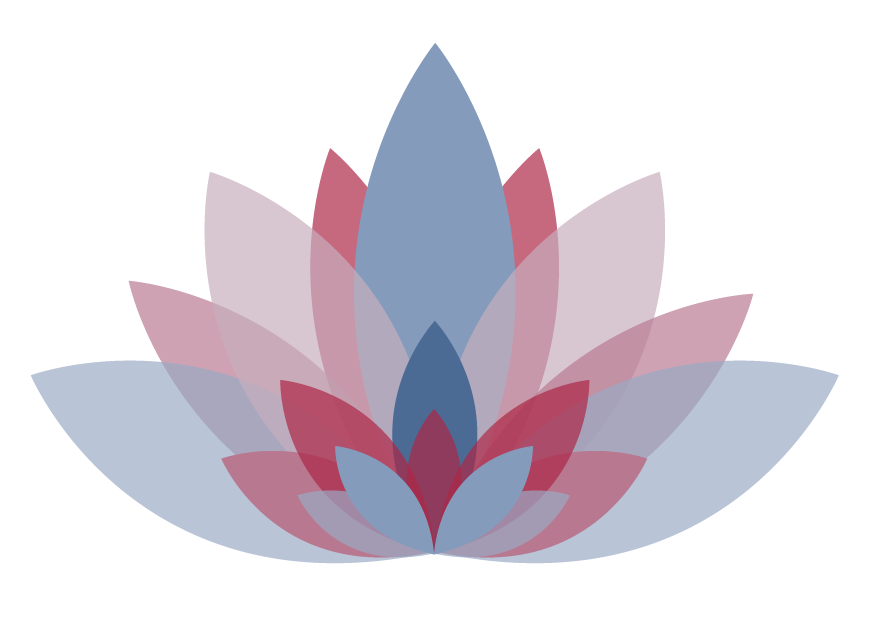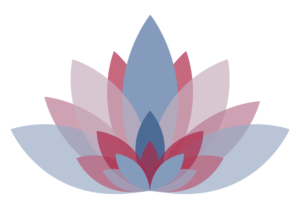Power Over Fear: How To Handle Your Job Interview With Confidence
“Our deepest fear is not that we are inadequate. Our deepest fear is that we are powerful beyond measure.” — Marianne Williamson, A Return to Love
Fear of consequences. Fear of judgment and unmet expectations. Fear of communicating poorly, of forgetting or overlooking something important. Fear of the unknown.
And yes, fear of shining so brightly that we seem arrogant.
No wonder a job interview can feel stressful: it packs a lot of emotion. However, knowledge and perspective will take you beyond the fear, equipping you with confidence that is powerful rather than overpowering.
It helps to recognize that an interview isn’t a one-sided sales pitch or even a discussion about an employment opportunity. It’s a conversation about joining a team, a give-and-take of mutual exploration. As in a dance or a tennis match, the focus is on back-and-forth movement.
And as in any interaction, you must understand the rules, the rhythms, and the reasons of what you’re trying to accomplish. Let’s examine the specific steps for a successful job-interview experience.
Your Power Comes from Preparation:
Research, Practice, and Mindset
Preparation is key. The greatest confidence-builder you can bring to an interview is preparation. This requires work you may wish you could avoid; however, skimping on effort before the interview will not create inner power and self-assurance. Accept that the work is necessary for your sense of confidence, and allow the time to get ready.
Research yourself. You were offered the interview based on your application materials, so make sure you know their contents. Then thoroughly review the job description and match your experience and strengths to the position requirements. You’ll use this information as a blueprint for demonstrating your value and preparing for interview questions.
Any focused discussion of your job-specific strengths will also require concrete evidence. For this, construct stories showing how you can solve the types of problems that concern your prospective employers. Job-interview storytelling is always pinpointed toward the interviewing organization’s needs and follows a specific format, often called the STAR technique:
- Quick overview of a situation or task you’ve previously faced.
- Details of the action you took to resolve the situation or task.
- Measurable result of your initiative.
In addition, plan to weave your character strengths into a conversation about your team fit, relating the job description to some of your key individual strengths, such as leadership or humor. The VIA Institute on Character offers a free survey and helpful clarification.
Research the organization and interviewers. Head to the internet, and note your findings. You’ll use this information in your upcoming exchange of relevant answers and targeted questions.
Search the organization’s website, Facebook page, and LinkedIn and Twitter profiles. Those are likewise good resources to learn about your interviewers. If you don’t know their names, call or email the person who set up your interview and ask. Google the organization, and check its listing on Glassdoor company reviews.
What do you want to know about the organization and interviewers?
Contact and leadership information.
Organizational background or work history, including dates.
Product, service, or role, along with branding and slogans.
Size of organization and department, specifically number of employees and available financials.
Competition, professional affiliations, or benchmark organizations.
Practice telling your story. Once you feel comfortable discussing your background, can connect the job description to your accomplishments and strengths, and have collected relevant details about your prospective employer, start practicing your part of the conversation.
Rehearse (1) showing evidence of relevant experience, (2) smoothly delivering your STAR stories, and (3) answering and asking questions that indicate you’ve done your research. Rehearse aloud, and repeat.
Book an appointment with a career counselor or coach for a mock interview as well. This can be extremely helpful for practicing and processing potential answers.
Remember, the more ingrained your research becomes, the more natural and relaxed you’ll feel during the conversation. There are other important ways to build interview confidence too.
Develop your mindset. Anxious feelings and thoughts are not facts. They are ever changing, and you choose how much strength to give them.
As you approach the interview, ground yourself with a commitment to being fully present in the moment and in solid, productive thoughts. Differentiate those grounded thoughts from fleeting mental chatter.
Trust yourself, the interviewers, and the process. See yourself confidently walking into your interview and engaging in congenial, back-and-forth conversation.
Finally, smile. You have done the work, and you are ready.
Process: Genuine Conversation and Mutual Exploration
Now you can settle into an authentic conversation with a specific purpose: gathering data to explore the possibility of your joining the team.
Information sharing begins the moment you arrive, whether in person or online. Make sure your appearance is professional. Have copies of your application materials, a notepad and pen, and any physical evidence you can use to showcase your previous work accomplishments.
Being on time is crucial, so give yourself a cushion and show up early. Behave graciously toward everyone you encounter throughout the process.
While your prospective employer gathers data about you, learn the information you need from them too.
What are they asking? In Powerful Phrases for Successful Interviews, Tony Beshara says that interviewers want to know four things:
“Can you do the job?”
“Do we like you?”
“Are you a risk?”
“Can we work out the money?”
How do you respond? Jeff Taylor and Doug Hardy, authors of Monster Careers: How to Land the Job of Your Life, provide these recommendations:
Prove you can do the job. This speaks to your preparation for demonstrating value. What problems and pain points can you alleviate? How will you use your previous experience to benefit this organization?
Build rapport. Your research of the organization and interviewers will help here.
Communicate clearly. Be sure to listen carefully, clarify as needed, repeat the most significant ways you can meet their needs, and pay attention to your body language.
Gather feedback to address their impressions, asking, for example, “What strengths do you feel I bring to this position?” and “What concerns do you have about my background?”
Four types of questions supply information. Traditionally, you’ll be asked straightforward questions about your background. Recognize that even if a question such as “Tell me about yourself” seems broad, interviewers expect you to direct every answer toward your fit on their team.
You’ll apply the STAR technique to behavioral questions. This is when you can prove your value through relevant achievement stories.
Situational questions may appear behavioral but are hypothetical and elicit problem-solving abilities and emotional reactions: “If you were faced with a particular situation in this job role, what would you do?” Handle any unexpected scenario with professionalism and with the STAR system you’ve already mastered.
Equally informative, throughout the interview you’ll ask probing, open-ended questions—not only for feedback but also to advance the conversation, to demonstrate your familiarity with the organization and your interest in the position, and to gather your own data.
Your inquiries will help you assess how you compare to their ideal hire, what you’ll need to do in the job, and even whether you want to join the team. Always ask questions!
However, don’t ask about compensation, anything personal or sensitive, or something you can learn online.
Further, you might offer to show post-interview evidence of your skills. Propose a trial experience—anything from a research project to a marketing plan—that establishes your job confidence and motivation to be hired.
As the conversation winds down, express your continued interest in the position and ask about next steps, the hiring timeline, and when you can follow up.
Finish by expressing appreciation and gathering contact information for all your interviewers.
Postscript: Follow-Up and Moving Forward
The same day of your interview, send thank-you emails that continue the conversation. This is not the time for generic, perfunctory notes. Use your thank-you as an opportunity for meaningful follow-up. You can add a point you forgot, expand an explanation, emphasize something important, or clarify any possible confusion.
At the very least, restate your qualifications and the value you will add, including how you can make or save money for the organization.
And keep in mind that moving forward may not involve this position. If you are not invited back—or choose not to pursue the opportunity—view this experience as invaluable learning and practice. From research to follow-up, you have completed the steps, which is all you can control. Diving into the work for your next interview can be the best way forward; and now that you know the process, it will be easier.
Also, remember the contact information you gathered at this interview? Add those contacts to your network. You can circle back to them in a couple of months and check whether there are more openings at their company, or whether they can suggest someone to speak to at another organization.
Power over Fear
You won’t build interview confidence with shortcuts. Instead, take seriously the title of Steven Pressfield’s manifesto: Do the Work. You need not be one of the fearful job seekers “who doubt and overthink and hesitate.” Simply work the process that creates genuine confidence. Prepare. Research. Practice. Rinse and repeat.
By taking purposeful, structured action, you will be ready for an interview conversation that highlights your potential fit on an employer’s team. And you will be primed to comfortably move beyond fear and into your own power.
If you would like personal guidance, Boulder Career Services provides professional support for handling your job interview with confidence. We can schedule a mock interview, help with follow-up and salary discussions, and keep you moving forward. Please email janemckeanbcs@gmail.com, or call 202-491-5487.
About the Authors: Ranee Boyd Tomlin, MDiv, PhD, GCDF, writes about work and transition at Words for Stories. Jane McKean, LPC, is a Career Counselor and Leadership Coach at her company, Boulder Career Services.
Additional Resources Used:
Boldt, A. G. (2008). No-Nonsense Job Interviews: How to Impress Prospective Employers and Ace Any Interview. Franklin Lakes, NJ: Career Press.
MacDougall, D. A., & Sanders-Park, E. H. (2010). The 6 Reasons You’ll Get the Job: What Employers Look for—-Whether They Know It or Not. New York, NY: Penguin Group.
Spiro, M. (2015, February 3). So, Do You Have Any Questions? Nailing the Interviewer Closer [LinkedIn article]. Retrieved from https://www.linkedin.com/pulse/so-do-you-have-any-questions-nailing-interview-closer-michael-spiro/

